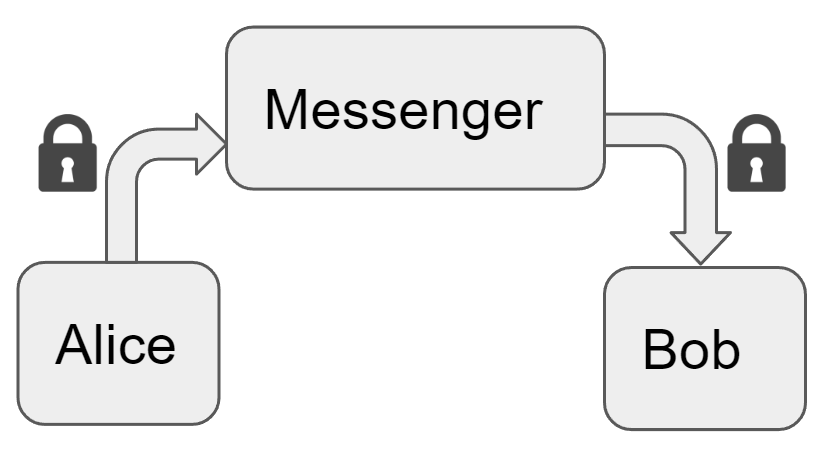TL;DR - no matter who you are, you need to set up an end-to-end encrypted communication app for your calls and messages, and start using it for your day to day communication.
Encryption is a technology that allows us to send messages to each other using codes. It's core to how we are able to exist in the digital age: it's why a neighbor with an antenna can't read your emails, it's how you are able to bank online without a hacker rerouting your money, or even how you access your medical records online privately. Encryption is so ubiquitous that you are using it every day and don't even realize it. In fact, most major services on the Internet, even completely public ones, turn on encryption automatically.
- That outsiders won't see or hear your communication.
- That outsiders won't modify what you're sending.
- CAN'T see or hear anything that is being said/messaged/shown/etc.
- CAN'T record your communication.
- CAN'T meaningfully modify what you say.
- CAN still see who you're talking to and when.
- CAN still block you from sending a message (but without any knowledge of what you're about to say.
- Can't target advertisements based on what you're saying.
- Quality, speed, and reliability of group communication tends to be worse than non-E2EE solutions.
- Some features like camera filters, message search, are more difficult to build and may be of lower quality.
- The communications provider. How much do you want a big tech firm to know about you, and how comfortable are you with who they will sell this data to? Could a data broker build a profile of you to be targeted or even harassed?
- Partners. Consider the case of the Cambridge Analytica scandal, where Facebook leaked private user data to a company which then used it to interfere in elections in the United States.
- Hackers. Could a hacker reading your text messages use that information to access your bank or other important accounts?
- Government. Are you a law-abiding citizen? Okay, sure you are... but are you a law abiding citizen by the past and future laws of every government you'll ever interact with? For example, Facebook was forced to disclose messages under subpoena related related to an abortion case (which became illegal shortly AFTER the subpoena).
- Signal is the defacto standard for the privacy-conscious. Their app is the gold standard for the privacy conscious, and their technology is so good, their "Signal protocol" is used in many other apps.
- WhatsApp offers E2EE by default. While many are nervous what ownership by Meta will mean for the future, their track record so far on encryption is pretty good.
- Telegram is not E2EE by default, but does offer optional "secret chats". While I'd prefer it to be on by default, at least you can choose it for any communication.
- Text messages from your phone are the WORST! Stop using them, right now, except where absolutely necessary to communicate with businesses. The system is ancient and notoriously insecure. This includes iMessage - while iMessage itself may be E2EE, that only applies to your "blue bubble" contacts, while your "green bubble" contacts still go through insecure SMS.
- Telephone calls. The security is weak, but also the quality is absolutely terrible compared to even the most mediocre audio calling apps. It's all around a bad experience, and there are way better options, including Facetime and Duo.
- Facebook Messenger. While they support end-to-end encryption, it's not offered on all clients, so it's difficult to ensure a secure connection.


